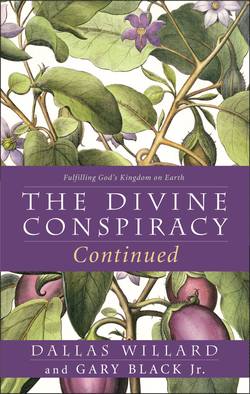Читать книгу The Divine Conspiracy Continued: Fulfilling God’s Kingdom on Earth - Dallas Willard, Dallas Willard - Страница 22
GOD’S KINGDOM AND THE CALL OF THE GOOD SHEPHERD Discussion Questions for Chapters 1–3
ОглавлениеAt the end of some chapters are discussion questions designed to encourage both individual reflection and group dialog. The authors’ hope is that reflecting on these questions will allow readers to better unpack and integrate the insights and ideas within each section of the book.
In these introductory chapters, Willard and Black seek to make the case that all followers of Jesus Christ have the responsibility in their sphere of influence to teach, proclaim, model, and intentionally live out the reality of God’s “divine conspiracy.” Since we live at the “mercy of our ideas,” the following questions will help you to examine your thoughts about the kingdom of God, the kingdoms of this world, and our vocations in light of God’s calling upon our lives.
1. What life experiences led you into your present vocation? As a leader who influences others, you often reflect those who have influenced you. Who were the role models who worked to form you in your current role? How did they influence your vision, mission, values, conduct, character, and communication?
2. When was the first time you heard a teaching about the “kingdom of God”? Did that teaching include the idea that God’s kingdom is presently available and accessible, or was it assumed that the kingdom of God is only a future reality? Share with one another how these dissimilar teachings on the kingdom of God affect our thinking, behaviors, and vocational responsibilities. Discuss what you believe is God’s overarching mission or goal for our world.
3. Willard and Black suggest that there are significant problems (i.e., inaccurate views of the end times and of the purposes of the gospel) in many of our churches and Christian institutions of higher learning that have hindered us from experiencing God’s rule through his Son, Jesus, the king. Do you agree or disagree with the authors’ viewpoints? What is the “good news” according to Jesus Christ? What other problems may be created, although unintended, in our Christian doctrines and beliefs that have hindered both individuals and organizations from more fully living in the reality of God’s kingdom? Give support for your views.
4. The authors suggest that one of the best places for us to begin developing a better understanding of the kingdom of God in our contemporary contexts is found in the concept of shalom, or peace, defined in Psalm 23. Do you believe a Psalm 23 kind of life is preferable or even possible? If so, how is it possible?
5. Fear is the absence of shalom. Proverbs 29:25 states: “The fear of others lays a snare, but one who trusts in the Lord is secure.” How does fear separate us from the peace of God? How does our fear separate us from others? How does fear make us compare ourselves with others or seek dominance over them? In what ways does fear distort what is true? Give examples.
6. Exercise: Seek to memorize Psalm 23. Read it daily for the next thirty days slowly, focusing on both the images and ideas it conveys.
